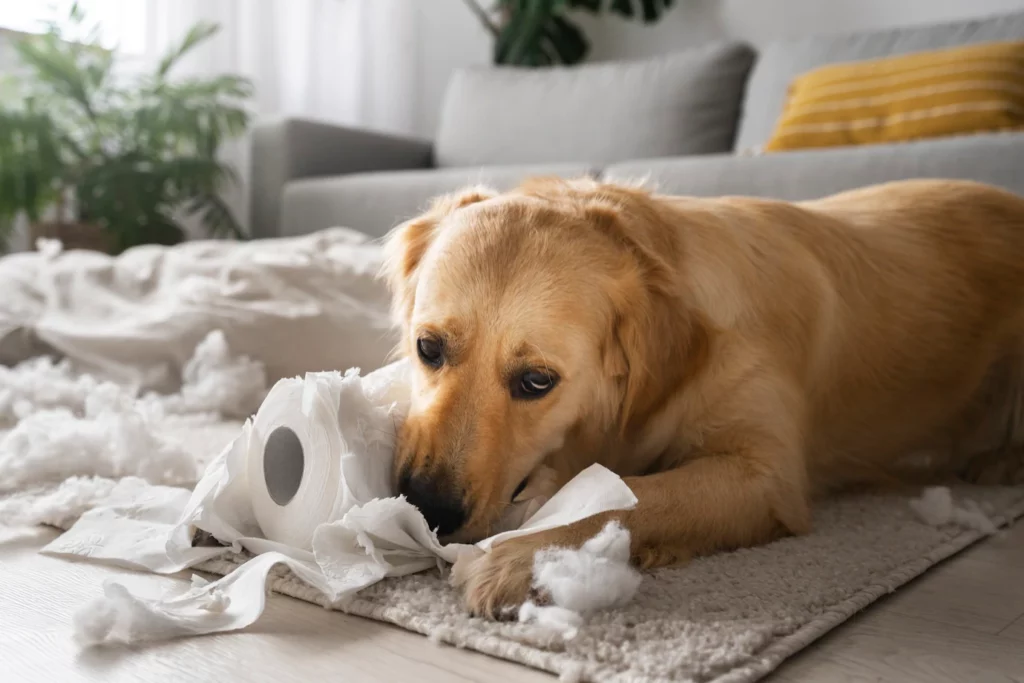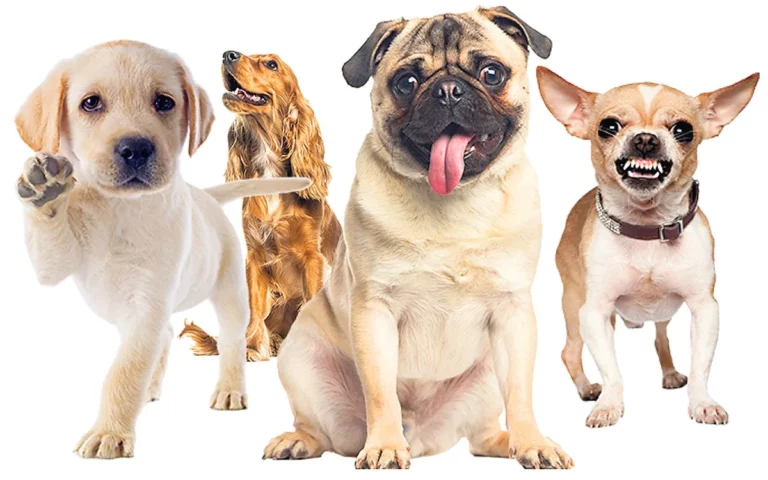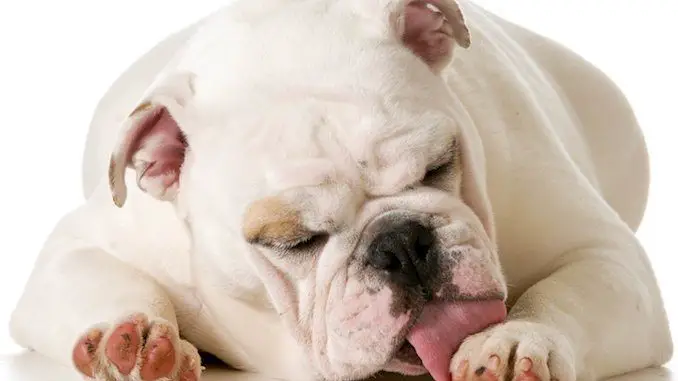5 Effective Home Remedies for Dog Sneezing
Nothing quite captures our hearts like the sight of a dog mid-sneeze, with their nose scrunched up and eyes tightly shut. But when those cute, isolated sneezes become frequent, it might be a sign of discomfort or even a health issue.
While occasional sneezing is normal for dogs, just like humans, persistent sneezing can be a cause for concern.
In this blog post, we’ll explore why dogs sneeze, delve into common symptoms that may accompany sneezing, and discuss the role of allergies. We’ll share a variety of home remedies for dog sneezing to help alleviate your furry friend’s symptoms. But remember, if sneezing continues, it’s important to consult your vet.
Let’s get started on our journey to help your dog lead a sneeze-free life!
Key takeaways
Dog sneezing can result from allergies, irritation, or health issues.
Observing sneezing patterns helps identify possible problems.
Home remedies like clean environments, humidifiers, and hydration can soothe sneezing.
Persistent or symptom-accompanied sneezing requires vet consultation.
Cleanliness, allergen avoidance, and healthy lifestyle can prevent sneezing.
Sneezing can indicate overall pet wellness, highlighting the importance of behavior observation.
Home Remedies for Dog Sneezing
When your dog starts sneezing, it’s natural to want to help them feel better as quickly as possible. Here are some home remedies that can soothe your pet’s symptoms:
1) Ensure a Clean Environment
Keep your dog’s environment clean and free from potential allergens. Regularly clean their bedding, toys, and feeding bowls, and vacuum carpets and rugs frequently to reduce dust and mites.
2) Use a Humidifier
Dry air can irritate your dog’s nasal passages, leading to sneezing. A humidifier can help by adding moisture to the air and soothing their nasal passages.
3) Try Natural Supplements
Some natural supplements can help reduce inflammation and strengthen your dog’s immune system. Omega-3 fatty acids, quercetin, and vitamin C are all known for their anti-inflammatory properties. Always consult with your vet before introducing any new supplements to your pet’s diet.
4) Keep Your Dog Hydrated
Ensure your dog always has access to fresh water. Staying hydrated can help to soothe irritated nasal passages and reduce sneezing.
5) Consider a Dietary Change
If you suspect food allergies could be causing your dog’s sneezing, consider making changes to their diet. A hypoallergenic diet could help to eliminate potential food allergens.
Remember, while these remedies can help alleviate symptoms, they’re not a substitute for professional veterinary advice. If your dog’s sneezing continues or worsens, always consult with a vet.
Why Do Dogs Sneeze?

Just like us, dogs sneeze for a variety of reasons. It could be something as simple as a tickle in the nose or a sign of something more complex. Let’s explore some of the most common reasons why our canine companions might start sneezing:
Dust or Foreign Bodies
The simplest and most common reason for a dog’s sneeze is the presence of dust, dirt, or other foreign bodies in their nose. Just as we sneeze to clear our nostrils, dogs do the same. If your dog is an avid sniffer or loves digging, they’re more likely to get a snoot full of dirt and sneeze it out.
Allergies
Dogs can be allergic to a range of substances, from pollen and dust mites to certain types of food. Allergies can cause inflammation in the nasal passages, triggering sneezing as the body’s way of trying to remove the allergen.
Infections or Illness
Upper respiratory infections, such as canine influenza or kennel cough, can cause dogs to sneeze. If your dog’s sneezing is accompanied by other symptoms such as coughing, nasal discharge, or fever, it could be a sign of an infection.
Excitement or Play Sneezing
Interestingly, some dogs sneeze when they’re excited or engaged in play. This type of sneezing is usually easy to recognize because it’s situational and occurs during moments of heightened emotion.
While these are some of the common causes, remember that every dog is unique. What triggers a sneezing fit in one dog may not affect another. It’s always best to keep an eye on your pet and consult with a vet if you notice any sudden changes or persistent sneezing.
Signs Accompanying Dog Sneezing
While a single sneeze here and there is perfectly normal for our furry friends, it’s the accompanying symptoms that could hint at something more serious. Here are a few signs to watch out for:
Frequent Sneezing
While occasional sneezing is common, frequent bouts of sneezing could be a sign of an underlying issue, such as allergies, a foreign body stuck in the nasal passage, or even a respiratory infection.
Discharge or Bleeding
If your dog’s sneezing is accompanied by nasal discharge or bleeding, this could suggest a more serious problem like a nasal infection or foreign body. In some rare cases, it could even indicate a tumor.
Other Signs of Illness
Signs such as lethargy, loss of appetite, coughing, or fever accompanying sneezing could be an indication of a respiratory infection or other illness.
Facial Swelling or Pain
If your dog appears to be in pain when touching their face, or you notice swelling or deformity, these could be signs of a dental problem, a foreign object, or even a tumor.
Change in Behavior
Any change in your dog’s normal behavior, such as increased agitation, restlessness, or a change in eating or sleeping patterns, warrants closer attention.
The Role of Allergies in Dog Sneezing

Allergies are a common culprit behind our dogs’ sneezing fits. Just like humans, dogs can be allergic to a whole host of things. Understanding the role of allergies can help us effectively address and manage our pets’ sneezing.
Environmental Allergens
Dogs can be sensitive to environmental allergens, such as dust mites, mold spores, pollen, and even certain fabrics. These allergens can cause inflammation in the nasal passages, leading to sneezing.
Food Allergies
Certain foods can also trigger allergic reactions in dogs, causing a range of symptoms, including sneezing. Common food allergens for dogs include beef, dairy, wheat, and chicken.
Seasonal Allergies
Just like us, dogs can also experience seasonal allergies. This means during certain times of the year when allergen levels are high, such as springtime, your dog may sneeze more frequently.
Allergy Management
If you suspect your dog has an allergy, it’s important to consult with your vet. They may recommend allergy testing to identify the exact allergens. Once the allergens are identified, you can work on managing them. This could involve making changes to your dog’s environment, diet, or even starting them on allergy medication.
When to Consult a Vet for Dog Sneezing
While it’s natural to want to help your sneezing dog at home, it’s crucial to understand when professional help is needed. Here’s when you should definitely reach out to your vet:
Persistent Sneezing
If your dog’s sneezing doesn’t seem to improve or gets worse over time, it’s time to consult a vet. Persistent sneezing could indicate a more serious problem that needs professional treatment.
Accompanying Symptoms
Sneezing accompanied by other symptoms like fever, lack of energy, loss of appetite, coughing, or nasal discharge should be a signal to seek immediate veterinary attention.
Changes in Behavior or Appearance
Changes in your dog’s behavior, such as increased restlessness, or physical changes like facial swelling or nosebleeds, should prompt a visit to the vet.
Ineffectiveness of Home Remedies
If you’ve tried home remedies and your dog’s sneezing persists, it’s time to see a vet. They can provide a proper diagnosis and prescribe appropriate treatments.
Remember, it’s always better to err on the side of caution when it comes to your pet’s health. If you’re ever in doubt, reach out to your vet. They’re there to help you ensure your furry friend leads a happy and healthy life.
How to Prevent Dog Sneezing
While it’s not always possible to completely prevent sneezing in dogs, there are a few things you can do to help minimize the risk:
Regular Cleaning
Keep your dog’s environment clean. Regularly clean their bedding, toys, and food and water dishes to reduce potential allergens and irritants.
Avoid Known Allergens
If you know your dog is allergic to something, do your best to keep them away from it. This could mean avoiding certain areas during walks, switching to hypoallergenic dog food, or using hypoallergenic laundry detergent on their bedding.
Regular Vet Check-Ups
Routine veterinary care is crucial in catching potential health issues early. Regular check-ups allow your vet to monitor your dog’s health and catch any problems before they become serious.
Healthy Lifestyle
A balanced diet and regular exercise are key to keeping your dog healthy. A strong immune system can help protect against many potential causes of sneezing.
While these measures can’t guarantee your dog won’t ever sneeze, they can certainly help keep them healthier and happier. After all, an ounce of prevention is worth a pound of cure!
Dog Sneezing and Overall Pet Wellness
Dog sneezing may seem like a small concern, but it can be a significant indicator of your pet’s overall wellness. Here, we delve into the connection:
Sneezing as a Symptom
Sneezing isn’t just an isolated event—it could be a symptom of broader health issues. This includes allergies, respiratory infections, or even dental problems.
Regular Monitoring
Regularly observing your pet can help you notice any changes in their sneezing patterns. This can aid early detection of potential health problems.
Holistic Wellness
A well-rounded lifestyle is key to managing dog sneezing. This includes a balanced diet, regular exercise, mental stimulation, and routine vet check-ups.
Pet Parents’ Role
As pet parents, you play a crucial role in your pet’s wellness. Being proactive, observant, and responsive to their needs can make a significant difference in their health.
Understanding the connection between dog sneezing and overall wellness can help ensure our furry friends lead healthy, happy lives. It’s all about seeing the bigger picture and adopting a holistic approach to pet care.
Related:
FAQs on Home Remedies for Dog Sneezing
Can I use human allergy medicine for my sneezing dog?
While some human medications are sometimes used for dogs, it’s crucial to always consult with a vet before giving your dog any human medicine. What works for us might not be safe or effective for our pets.
What can I do if my dog’s sneezing doesn’t improve with home remedies?
If your dog’s sneezing persists despite using home remedies, or if it worsens over time, it’s important to consult with a vet. They can provide a proper diagnosis and prescribe the appropriate treatment.
Can diet changes help with my dog’s sneezing?
Yes, if your dog’s sneezing is caused by a food allergy, changes to their diet could help reduce their symptoms. Consult with a vet to discuss potential dietary changes.
Can I prevent my dog from sneezing?
While you can’t completely prevent sneezing, measures like regular cleaning, avoiding known allergens, and maintaining a healthy lifestyle can help reduce the frequency and severity of your dog’s sneezing.
What natural supplements can help with my dog’s sneezing?
Natural supplements like omega-3 fatty acids, quercetin, and vitamin C can help reduce inflammation and strengthen your dog’s immune system. However, always consult with your vet before introducing any new supplements to your dog’s diet.
Final Thoughts
Dealing with a sneezing dog can sometimes be a bit of a puzzle. However, with a keen eye for observation, a few helpful home remedies, and a dash of preventive measures, we can help our canine companions manage this common condition effectively.
Above all, it’s vital to remember that consistent sneezing could be a symptom of a more significant issue, and when in doubt, consulting with a professional vet is always the best course of action.
By understanding why our dogs sneeze and knowing how to respond, we can ensure our pets lead comfortable, happy lives.
So, the next time you hear a ‘choo’, remember—you’ve got this covered!
References
- “Home Remedies for Dog Allergies.” WinPro Pet.
- “Dog Sneezing.” Natural Dog Health Remedies.
- “Dog Sneezing.” Rogue Pet Science.
- “Dog Keeps Sneezing.” Pet Honesty.
- “Understanding Dog Sneezing: Is it a Common Cold or Something More?” Animal Planet.
- “Dog Sneezing: Causes, Treatment, and When to Worry.” The Spruce Pets.






![Can a Dog Eat Pork Rib Bones? [3 Risks You Need to Know]](https://www.warmlypet.com/wp-content/uploads/2022/12/Can-a-Dog-Eat-Pork-Rib-Bones.webp)